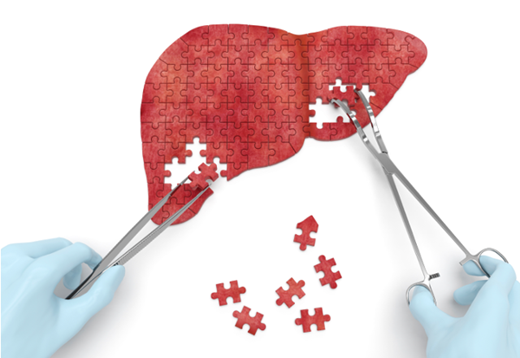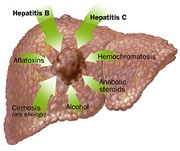4 Liver Cancer Treatment Advances
In recent years, there have been several advances in treating liver cancer. While removing liver cancer through surgery can be an effective form of liver cancer treatment for some patients, it’s not suitable for all patients. As researchers continue to uncover new and innovative treatments, doctors have more options to consider for their patients.
Chemotherapy Advances

In the past decade, chemotherapy has seen revolutionary research advances. With newer medications, patients are living longer after receiving just chemotherapy. Chemotherapy is either given alone or combined with other therapies. In many cases, chemotherapy treatment can shrink the size of tumors so that they can be more readily removed surgically.
Johns Hopkins Liver Cancer Clinical Trials

Intra-arterial Therapies for Liver Cancer
Often, liver tumors get their blood supply from the artery that supplies the liver. These tumors act as parasites to your body’s blood supply. In intra-arterial therapies, chemoembolization beads deliver cancer-killing medication to the tumor through the artery. These beads also block blood flow to the tumor, which helps prevent it from growing.
Chemoembolization is effective either alone or in combination with chemotherapy in treating and or reducing the size of tumors.
In some cases, patients that initially don’t qualify for transplantation can become eligible following treatment from chemoembolization and chemotherapy due to the shrinkage of the tumor.
These procedures are performed by interventional radiologists at Johns Hopkins.
Liver Tumor Ablation Techniques
Ablation therapies kill a liver tumor instead of removing it. In these techniques, doctors use a probe to kill tumors with hot energy. This minimally invasive approach is most effective for smaller tumors less than 3 cm.
At Johns Hopkins, experts perform microwave ablation on tumors that are not removable via other surgical interventions. This technique can be performed either surgically in the operating room or by interventional radiologists.
Surgical Care for Liver Cancer

Liver Transplant Advances
Liver transplantation has proven to be the most effective treatment for patients with hepatocellular carcinoma, a common type of liver cancer. If a patient has liver disease, such as cirrhosis, liver transplantation can also further reduce further the risk of recurrence following treatment. However, not all patients will be candidates for a transplant; this needs to be determined by an evaluation from a Johns Hopkins multidisciplinary team which includes transplant. They work closely together to ensure patients get the optimal treatment strategy.
Before recommending a liver transplant, doctors consider:
- The number of tumors
- Tumor size
- A patient’s health
Liver Transplant at Johns Hopkins

Johns Hopkins Liver Cancer Multidisciplinary Clinic







